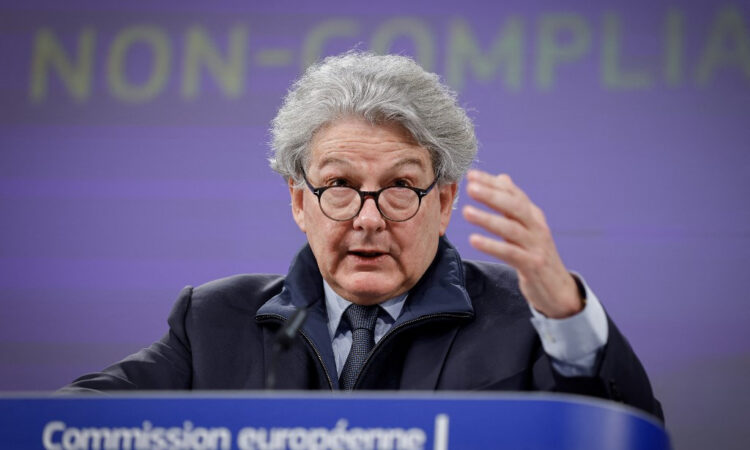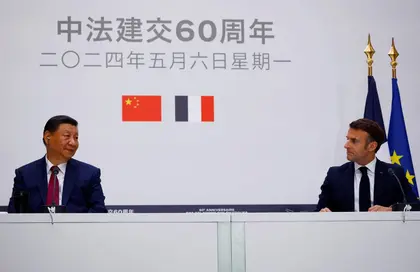European Commissioner Calls for Defense Industries to Mobilize ‘War Economy’ Mode to Aid Ukraine

The European industry commissioner, Thierry Breton, has announced his efforts to facilitate the transition of European industries towards a “war economy” mode to support Ukraine.
This initiative aims to boost the production of weapons by European companies for Ukraine, as reported by Agenzia Nova.
Breton said in a video message broadcast at the EU and US Defense Industries Forum that when designing the new European defense industrial strategy, he and Josep Borrell had agreed that uniting the European and Ukrainian defense industries had to be a key goal.
“This meeting of our respective industrial leaders is a first step, as it takes EU-Ukraine cooperation in the defense sector to the next level,” Breton said.
“I am pushing for defense industries in Europe to enter a war economy mode, so they can produce faster and more, with the aim of continuing to support Ukraine, now and in the long term, whatever happens,” he added.
Breton stressed the need to bolster ammunition production capacity and the importance of member states approving contracts to export munitions to Ukraine.
“We will ensure that we replicate the ammunition approach in other segments, in order to increase our production capabilities,” he said.
The European Commissioner disclosed that these efforts align with the objectives of the new European defense industrial strategy and accompanying program, which aim to enhance Europe’s defense readiness.

Other Topics of Interest
EU, France Press Xi to Use Influence on Russia, Halt Ukraine War
Europe is concerned that despite China’s official neutrality on the Ukraine war, it is essentially supporting Russia, which is using Chinese machine tools in arms production.
“The strategy is intended not only to support European defense industrial readiness but also to strengthen ties between the European and Ukrainian defense industries,” he said.
Breton added that the program set a clear priority for further cooperation development.
Speaking at the EU-Ukrainian Defense Industries Forum in Brussels via video conference, Ukrainian Foreign Minister Dmytro Kuleba echoed these statements. He said that Russia cannot be stopped with “political statements” alone, but that “superior firepower” is needed.
“Russia’s current pace of militarization is the highest since Soviet times. We are already in a new arms race, whether we realize it or not, whether we like it or not,” Kuleba stated.
The minister called on the EU to deter against an “aggressive Russia,” affirming Europe’s capability to defend itself.
In early March, the European Commission was scheduled to deliberate on transitioning to a “war economy mode” to bolster the EU’s arms production capacities. This transition aims to encourage EU countries to collectively procure weapons domestically, according to Reuters.
The full-scale invasion of Ukraine by Russia has underscored the EU’s shortcomings in munitions production and procurement, resulting in current shortages experienced by Ukraine.
Breton suggested the establishment of a European counterpart to the US Foreign Military Sales scheme, which aids “eligible countries” in purchasing from US arms companies. Additionally, he proposed incentivizing European weapons firms to prioritize domestic orders during crises.
In April, French President Emmanuel Macron stated the need for a sustained increase in weapons production in response to the Russian invasion of Ukraine. He made these remarks while laying the foundation stone for a new gunpowder factory in Bergerac, addressing the critical shortage of propellant charges required for artillery shells destined for Ukraine.






